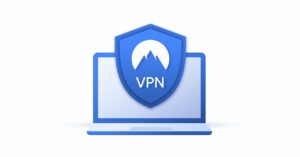 With the increasing risk of cyber threats and the pervasive presence of data-hungry entities, the need for effective digital security has never been more evident. One powerful solution that has gained significant traction is the Virtual Private Network, or VPN. In this brief guide, we will delve into the fundamentals of VPNs and how they serve as a vital tool in safeguarding your online privacy. Whether you’re concerned about hackers, intrusive data tracking, or restricted content access, a VPN can provide you with a shield of security and the freedom to explore the digital realm with confidence.
With the increasing risk of cyber threats and the pervasive presence of data-hungry entities, the need for effective digital security has never been more evident. One powerful solution that has gained significant traction is the Virtual Private Network, or VPN. In this brief guide, we will delve into the fundamentals of VPNs and how they serve as a vital tool in safeguarding your online privacy. Whether you’re concerned about hackers, intrusive data tracking, or restricted content access, a VPN can provide you with a shield of security and the freedom to explore the digital realm with confidence.
What is a VPN?
A Virtual Private Network (VPN) is a tool that encrypts your internet connection, creating a secure “tunnel” between your device and the internet. This shields your online activities from prying eyes, including hackers and data-hungry advertisers.
Enhanced Online Privacy
VPNs mask your IP address, making it difficult for websites, apps, and even your Internet Service Provider (ISP) to track your online activities. This means a more private browsing experience, reducing the risk of data collection and targeted ads.
Securing Usage Of Public Wi-Fi
Public Wi-Fi networks are notorious for their security vulnerabilities. VPNs encrypt your data while using public Wi-Fi, preventing cybercriminals from intercepting your sensitive information, such as login credentials or financial details. If you are a frequent traveler who must work on the road, a VPN will enable you to access sensitive business files safely, even from coffee shops or hotels.
Access to Restricted Content
VPNs allow you to change your virtual location by connecting to servers in different countries. This lets you access geo-restricted content, like streaming services or websites that might be blocked in your region.
Choosing the Right VPN
Not all VPNs are created equal. Look for services that prioritize strong encryption, a no-logs policy (meaning they don’t track your online activities), and a wide network of servers in various locations to ensure both security and optimal browsing speeds. As with most services, the best VPNs will require a monthly subscription. If you are setting up a VPN on a work computer and your office has a firewall, it likely has VPN functionality built into it.
While VPNs offer enhanced online privacy, it’s essential to choose a reputable provider and understand their terms of use. VPNs are a valuable tool in your online security toolkit, but they’re most effective when used alongside other best practices, such as keeping your software up-to-date, running a reputable antivirus and being cautious about the information you share online. If you have questions about your online security, call Mankato Computer Technology today.